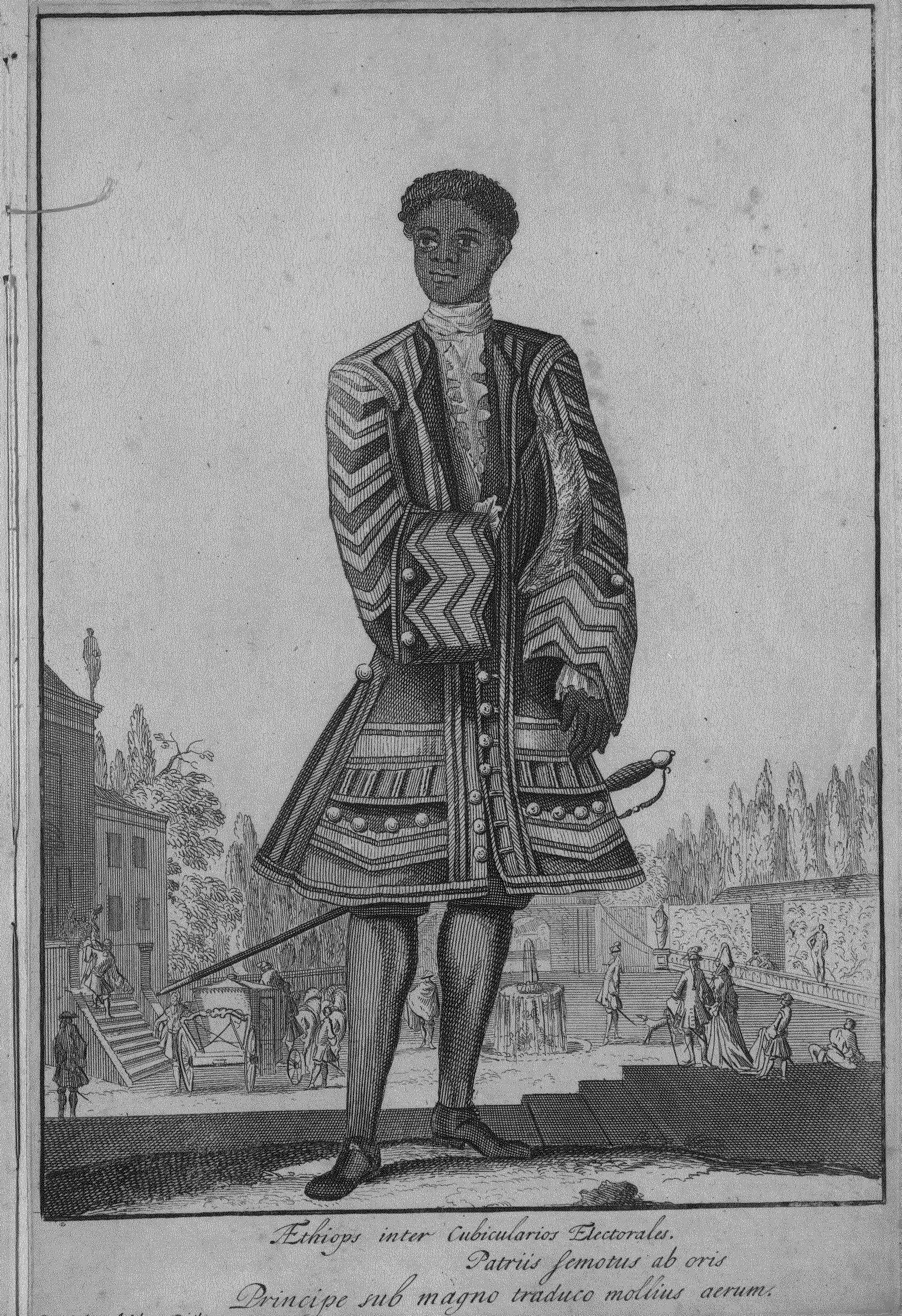By the seventeenth century, having a “Moor” in your court was considered a symbol of prestige across the German lands. For some courts, those near port cities or important rivers, it was possible to acquire Black people relatively easily through existing trade and patronage networks. However, those at greater remove or with lesser means found themselves at a disadvantage in this contest of status symbols. When the “Great Elector” of Brandenburg, Friedrich Wilhelm I (r.1640-1688), sent an expedition to establish a Prussian stake in the profitable West African trade in precious goods and slaves, he also took the opportunity to instruct his factors to acquire for his court six “attractive and well-formed” slaves, aged fourteen to sixteen. It is not clear whether these orders were carried out, but it is known that the Great Elector had a musical troupe that included West Africans. In 1683 one of those men, named as Ludwig Besemann, was fortunate enough to be transferred to the army for training as a drummer. Beyond their symbolic value, because they were crucial to managing the movements of ever more complex troop formations, such musicians held a privileged position in armies across Europe. Friedrich Wilhelm’s Hohenzollern successors continued to employ Black attendants in their court and in the army.
Perhaps the man displayed in the image here is one of the Great Elector’s musicians, or perhaps he filled another role in the court. His elegant dress makes clear that he occupied a position of some esteem, but the inscription also makes clear that he was meant to symbolize Friedrich Wilhelm I’s worldliness and benevolence.
Jeff Bowersox
deutsch

The inscription reads:
AEthiops inter Cubicularios Electorales.
Patriis remotus ab oris Principe sub magno traduco mollius aerum.
An Ethiopian within the Electors’ Court. I lead him, removed from his homeland, to a more pleasant environment under a great prince.
Source: Peter Schenk, “AEthiops inter Cubicularios Electorales,” Kostüme der Hof-Officianten des Grossen Churfürsten Friede. Wilhelm v. Brandenburg (ca. 1690), Klassik Stiftung Weimar, Anna Amalia Bibliothek, Signatur MB D 2 : 82 [a]. ©Klassik Stiftung Weimar. Inscription translation by Astrid Khoo.

Black attendants of the Great Elector (ca. 1690) by Jeff Bowersox is licensed under a Creative Commons Attribution-ShareAlike 4.0 International License. Permissions beyond the scope of this license may be available at https://blackcentraleurope.com/who-we-are/.